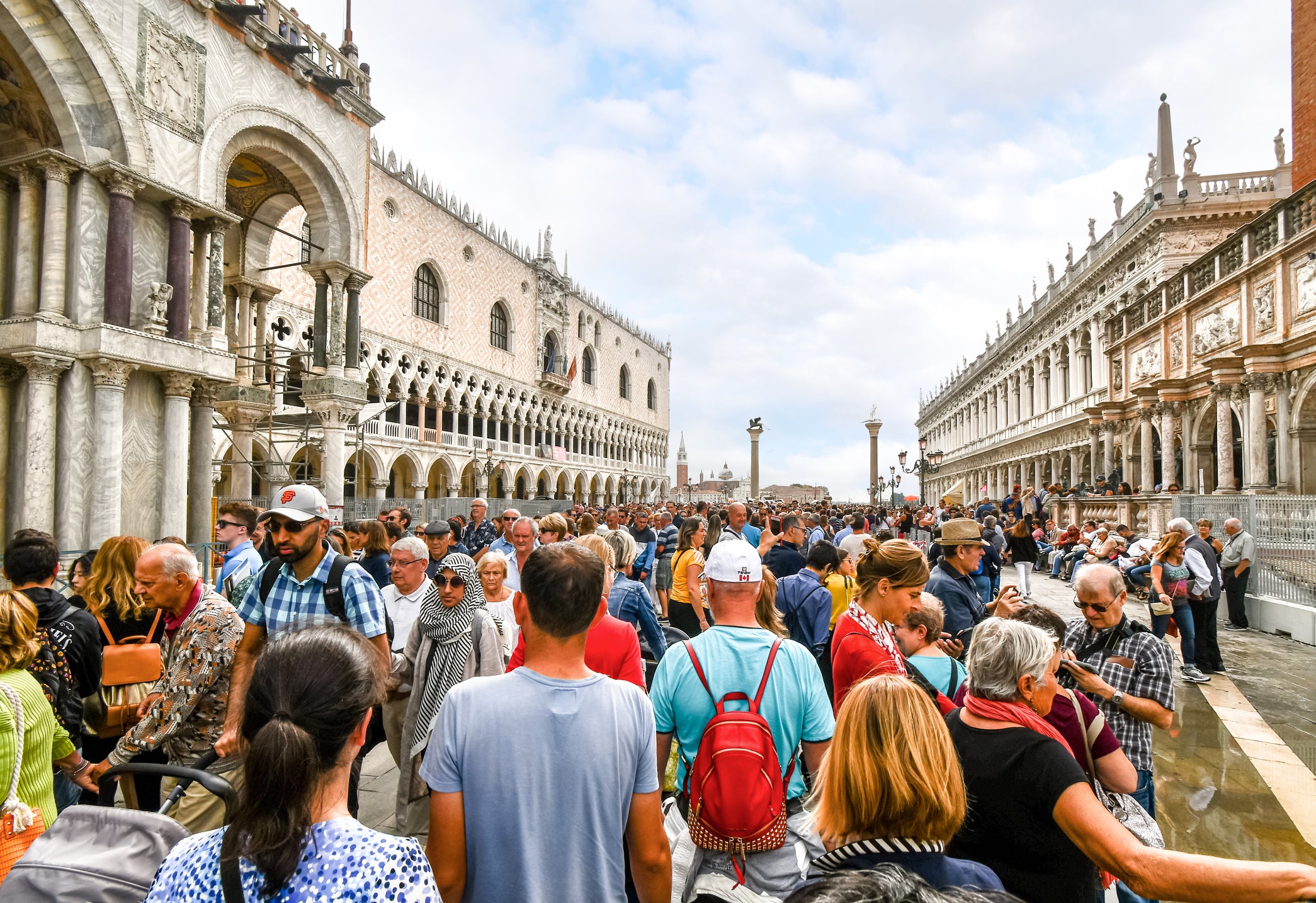The old town of Dubrovnik has a spectacular location on the edge of the Adriatic, and a deep history. Churches and cottages line the cobbled streets and heavenly stairways, all wrapped in ancient walls. And on any day in summer, the place is overrun with tourists. Some are attracted by the sheer good looks of the Croatian city; others are lured by the Game of Thrones connection. The remainder were simply dropped off for the day by a cruise ship and are following (and augmenting) the crowd.
Residents of other key tourism “honeypots” across Europe, including Amsterdam, Barcelona, and Venice, say visitor numbers are unsustainable and are damaging the community, as well as the fabric, of the city.
Glenn Fogel, chief executive of Booking.com’s parent company, believes visitor numbers to key destinations could be limited by a combination of “higher cost and lottery”. He told the BBC: “Even though you may not be wealthy, you should still get a chance to visit some of those beautiful and great places in the world.”
So how might such schemes work? These are the key questions and answers.
Surely the easy (and lucrative) way to limit tourism is to raise prices?
That is certainly a valid mechanism. Venice imposes a visitor levy on certain days, and there have been calls this week to increase the admission charge to €100 (£87). Meanwhile, authorities in Amsterdam are raising accommodation taxes. And in Edinburgh, which at this time of year is hosting the Festival and Fringe, hotel rates are so high that “normal” tourists are staying away.

Read more: Travel agents hit out at claim by Booking.com boss that ‘AI can find the best holiday for you’
Justin Francis, chief executive of Responsible Travel, says: “Price rises, tourism taxes, regulating accommodation – especially Airbnb – and “demarketing” are ways to ensure limit numbers.”
In the context of high fees, he cites the example of gorilla tracking in Africa, where permit prices can reach $1,500 (£1,130).
Mr Francis says: “Far from causing outcry, tourists view the handful of expensive permits as an exclusive, once-in-a-lifetime experience. The experience has not been boycotted; permits regularly sell out. Better still, the forests remain intact, and…
Click Here to Read the Full Original Article at The Independent Travel…
